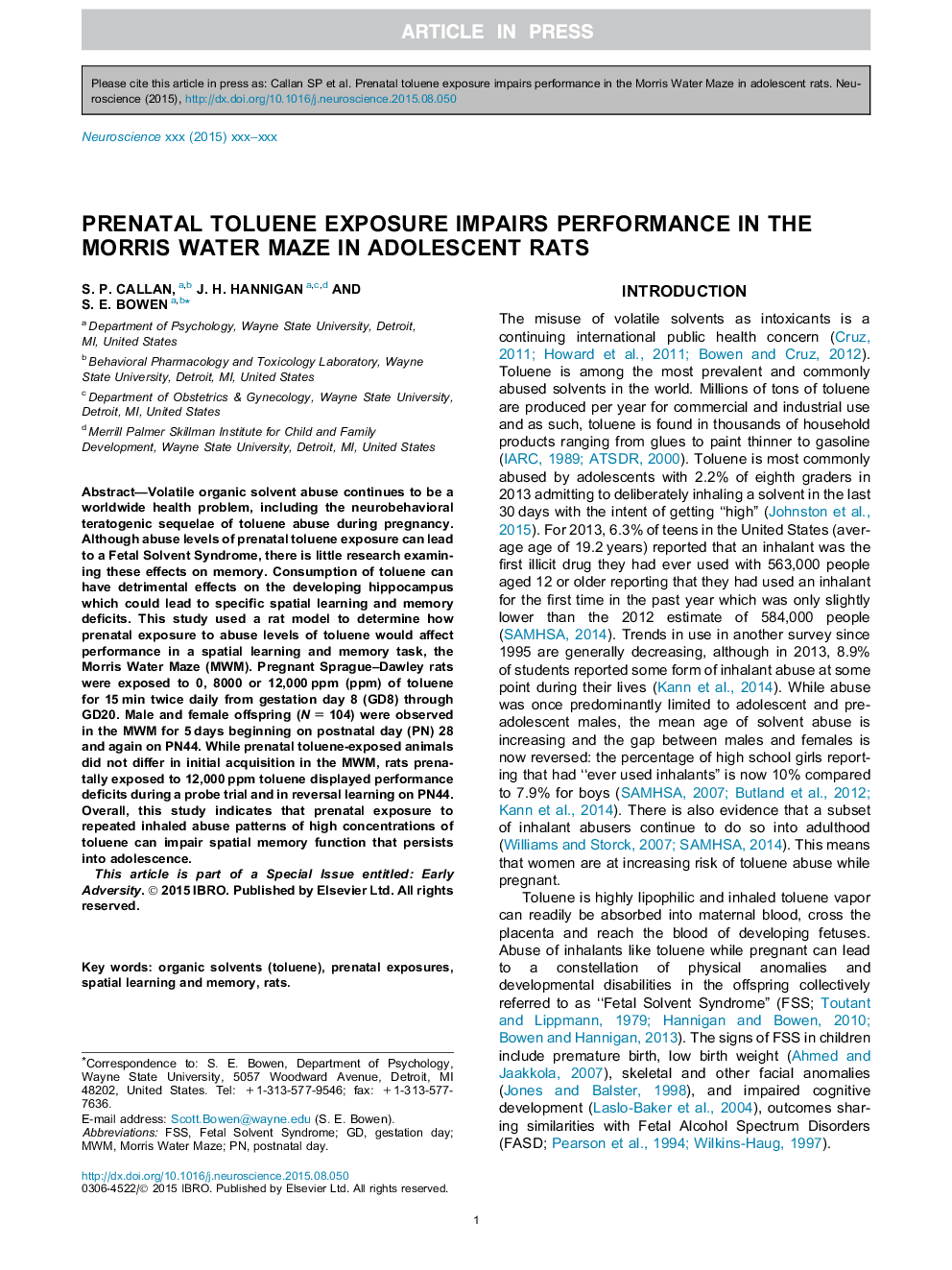| Article ID | Journal | Published Year | Pages | File Type |
|---|---|---|---|---|
| 5738025 | Neuroscience | 2017 | 8 Pages |
Abstract
Volatile organic solvent abuse continues to be a worldwide health problem, including the neurobehavioral teratogenic sequelae of toluene abuse during pregnancy. Although abuse levels of prenatal toluene exposure can lead to a Fetal Solvent Syndrome, there is little research examining these effects on memory. Consumption of toluene can have detrimental effects on the developing hippocampus which could lead to specific spatial learning and memory deficits. This study used a rat model to determine how prenatal exposure to abuse levels of toluene would affect performance in a spatial learning and memory task, the Morris Water Maze (MWM). Pregnant Sprague-Dawley rats were exposed to 0, 8000 or 12,000Â ppm (ppm) of toluene for 15Â min twice daily from gestation day 8 (GD8) through GD20. Male and female offspring (NÂ =Â 104) were observed in the MWM for 5Â days beginning on postnatal day (PN) 28 and again on PN44. While prenatal toluene-exposed animals did not differ in initial acquisition in the MWM, rats prenatally exposed to 12,000Â ppm toluene displayed performance deficits during a probe trial and in reversal learning on PN44. Overall, this study indicates that prenatal exposure to repeated inhaled abuse patterns of high concentrations of toluene can impair spatial memory function that persists into adolescence.
Keywords
Related Topics
Life Sciences
Neuroscience
Neuroscience (General)
Authors
S.P. Callan, J.H. Hannigan, S.E. Bowen,
